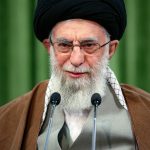Politics
Iran Politics
This page explores Iran’s political structure incorporating real-time RSS feed news and videos. By harnessing the power of RSS feeds, visitors can stay informed about the latest developments in Iran’s politics as they happen. The dynamic nature of these feeds ensures that users receive up-to-the-minute updates on political events, policy changes, and significant milestones, enabling them to stay abreast of the ever-evolving political scene.

Ali Khamenei
2nd Supreme Leader of Iran
Incumbent
Assumed office
4 June 1989
Acting: 4 June – 6 August 1989
Image credit
Iran, officially known as the Islamic Republic of Iran, features a complex political structure blending elements of theocracy and representative democracy. At its core is the Supreme Leader, who holds significant power and authority, serving as the highest-ranking political and religious figure. The Supreme Leader is appointed for life and oversees the military, foreign policy, and key governmental appointments. Concurrently, Iran operates a presidential system with a president elected by the public for a maximum of two consecutive terms. The president, while responsible for day-to-day governance and policy implementation, operates within the parameters set by the Supreme Leader and the unelected Guardian Council, which vets candidates and ensures conformity with Islamic principles.
The Iranian Parliament, or Majlis, is a unicameral legislative body with members elected by popular vote. While it has legislative powers, its authority is subject to the approval of the Guardian Council. Additionally, the Expediency Council arbitrates disputes between the Parliament and the Guardian Council. Local governance is facilitated through elected councils, such as city and village councils. Iran’s judiciary is independent, with a Supreme Court at its apex. The complex interplay between elected and unelected bodies, coupled with the overarching influence of religious authorities, defines the intricate political landscape of Iran. Despite periodic elections and a degree of popular participation, the overarching framework ensures the preservation of Islamic principles and the dominance of religious figures in shaping the country’s direction.
Unless other sources are listed, original content is provided by ChatGPT. ChatGPT may produce inaccurate information about people, places, or facts. #Iran #IranPolitics #IranNews #IranNewsToday #IranRSSFeed #BlahFace



